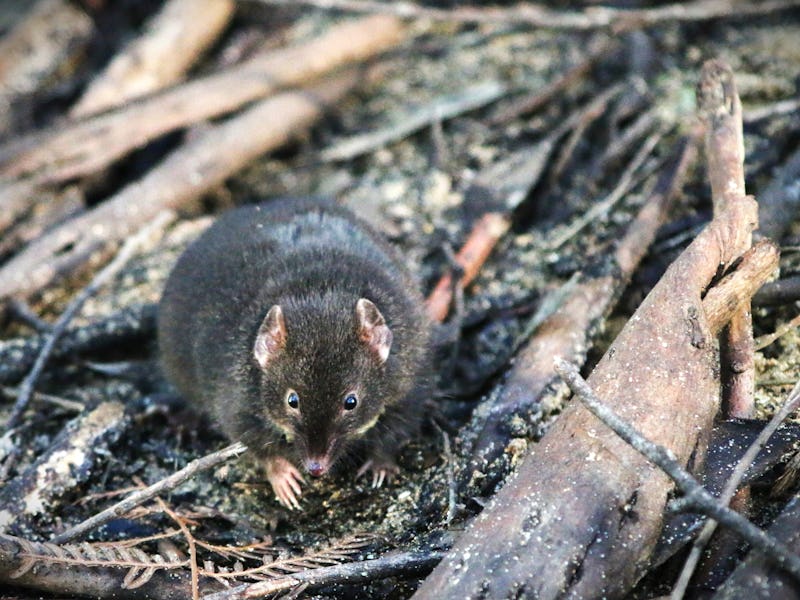The Bizarre Sex Lives Of These Marsupials Could Reveal Hidden Secrets About Sleep
You’d probably give up sleep if you only got to mate once in your life, too.

A mousey Australian marsupial, the male antechinus leads a tragic existence. This heartbreakingly adorable creature is semelparous, meaning it enjoys but a single breeding season, perishing soon after from a condition called mating syndrome. Perhaps it’s some consolation that this three-week winter orgy comprises the final days of its year-long life.
So maybe it isn’t surprising that researchers have discovered that in their final days, male antechinuses forego sleep in favor of sex. By studying the sleep and breeding schedules of two antechinus species (Antechinus swainsonii and A. agilisi), researchers have provided the first evidence of a land-dwelling mammal that practices this sort of sleep restriction. Their paper published today in the journal Current Biology details the plight of the male antechinus in their final weeks spent sleeping and mating.
Sex > sleep
Over two breeding seasons, scientists in Australia and Europe demonstrate that male — but not female — antechinuses sleep less during mating season but with no apparent deficits. In these two final weeks, these males cut three hours from their sleep cycle. Out of the 15 observed, one male “more than halved” his shut-eye, according to the paper.
For most animals, humans included, a sleep deficit results in a wonky brain. In an emailed response to Inverse written by two authors of the paper — Erika Zaid, a postgraduate sleep ecophysiology researcher, and John Lesku, a professor of zoology (both at La Trobe University in Melbourne, Victoria, Australia) — the researchers note that “if we stay up late, or wake up early, we suffer the next day…We can’t focus. We’re apathetic. And this effect compound[s] day after day.”
Male antechinuses, however, were “more active, appeared to be more vigilant, more reactive and more aggressive” during mating season, the researchers wrote, even as they got markedly less sleep. The males not only maintained their level of activity on less sleep while mating — they increased it. The team observed they were particularly active at nighttime, and to their surprise, some males even shifted their peak activity to a different time of day for their one shot at fatherhood.
The authors posit, then, that this evolutionary trait selects for males who can thrive on little sleep. “The selective pressure to be more active and seemingly not waste time sleeping seems to be more stringent for males than females,” the authors say. On the other hand, females don’t face this evolutionary pressure. They can reproduce more than once over their two-year lifespan. Moreover, females don’t need to seek out mates and can also store sperm from past partners.
Paternal quest before eternal rest
This antechinus’s sleep schedule is already weird pre-sexy times. They sleep more than one thousand times per day, with each episode lasting between a mere 45 seconds and up to 14 minutes. To measure the notable changes before and during the breeding season, the team took blood samples and measured electrical activity in the brain.
They analyzed blood samples from 20 male antechinus for two compounds that could speak to the potential mechanisms at work. Increases in testosterone, they found, may predict episodes of heavy activity. They also considered oxalic acid, a metabolite often used as a marker of sleep loss in mammals. Indeed, they observed reduced oxalic acid levels in breeding males, which exemplifies sleep loss during this period.
The last gasp
Still unknown is whether these marsupials experience any sense of compromise from their sleep deficit or if they “just accept the physiological cost to secure paternity before dying,” Zaid and Lesku wrote. They’re also unsure if males compensate by “sleeping more intensely” during breeding.
In the future, the pair is interested in further validating their findings on oxalic acid. Tracking the metabolite over brain and physical activity might help support their discovery that oxalic acid is a strong proxy for sleep loss.
Still, don’t lose sleep over the male antechinus — it loses sleep for a much better reason than you probably do.
This article was originally published on